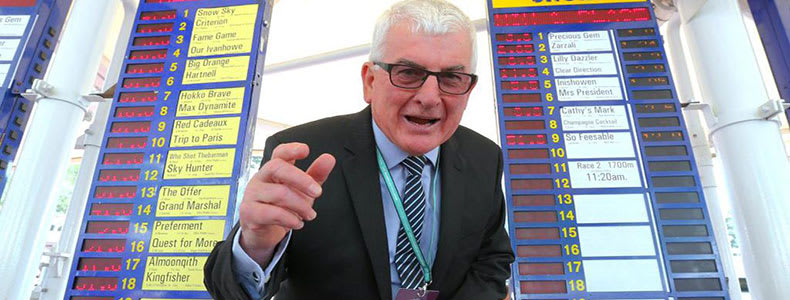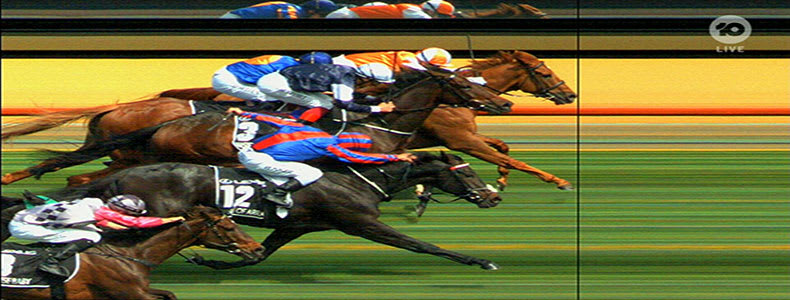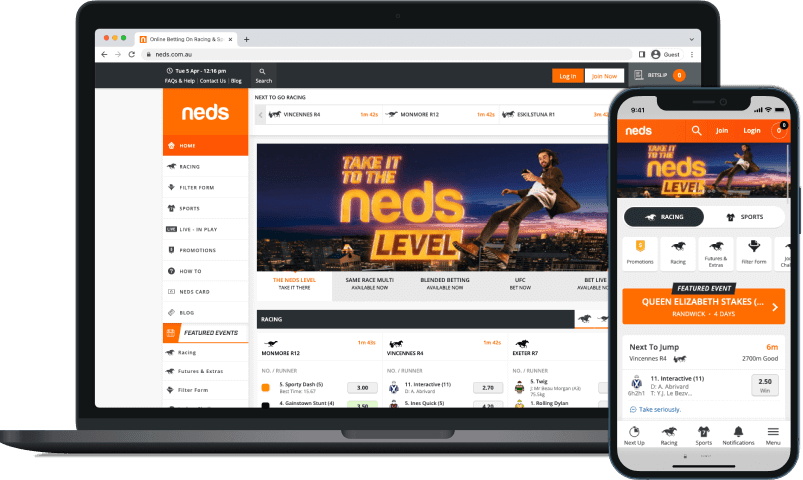
With more racecourses and more racehorses per capita than any other country — and billions of dollars wagered each year — thoroughbred horse racing is undoubtedly one of the most popular spectator sports in Australia.
There’s plenty of opportunity for punters looking to make a little money, too — Aussie thoroughbred racing takes place every day of the year, except on Good Friday and Christmas Day. Choosing the best horse is a lot of fun but it can be challenging, especially if you’re just starting out.
There are several factors you need to think about before placing a wager, including experience, previous performance, overall form, and reputation of the jockey. If you’re a newcomer to the sport and fancy placing your bets, we’ve put together this handy beginner’s guide to help you pick a winner.
Do Your Research
Past performance doesn’t guarantee future performance, but it’s still a very helpful metric when deciding which runner to place your bets on. By doing some quick online research into a runner's racing record, you can recognise patterns that might better influence your selection.
For example, sometimes a horse will win more often on a Metro, Provincial, or Country track, or it may have more success on shorter racecourses. Perhaps the horse performs better at certain post positions, too.
Pick The Right Trainer & Jockey
When it comes to betting on a winner, you’re not just choosing a runner; you’re choosing a trainer and a jockey as well.
A horse might look like a strong bet out on the track, but if it isn’t properly trained, it has little chance of winning the race. Similarly, a strong horse will never fulfil its potential unless it’s paired with the right jockey on the day.
Here are some quick tips to help you pick right:
- Go to the racetrack early and have a look at the warm-up session. Pay particular attention to the jockey’s riding form and the trainer’s instructions.
- Don’t ignore the ‘hot’ jockeys that other punters are following. While everyone loves an underdog, confidence is key in horse racing and experienced riders are often worth your bet — especially if you’re new to the game. At the same time, don’t ignore recent failures, even if a jockey has a long string of successes behind them. Nobody’s luck lasts forever, and it could be that your hot jockey has lost their touch.
- Take a look at a horse's past performances, its jockey, and its trainer — this should show you whether they’re all consistent winners, either on the track or behind the scenes.
- Find out if your horse and your jockey have performed together before, and whether they tend to do better on a particular race track or distance when they compete together.
Study The Race Form
You can find out a lot of valuable information from a race card, also known as racing guides or forms.
Even a quick glance can tell you everything you need to know about a race and the horses that are competing. Here are a few notable things to look out for:
Career
Look at the column (sometimes titled ‘Career') beside the horse's or runner’s name — it should have a group of numbers listed. These numbers will tell you how many times the horse has placed first, second, and third in previous races.
If you don’t see many numbers beside a horse’s name, then it hasn’t placed — and you probably shouldn’t wager your money on it.
Racecourse Experience
You should also be able to find out if the horse has raced at this particular track before — commonly designated by a ‘t’. It’s best to pick a runner that has at least some experience of the racecourse.

Age Of Horse
You may also see a column that gives the horse’s age, which is another factor worth considering. Keep in mind that Australian thoroughbreds often begin their racing life at the age of 2 or 3, and it’s not uncommon for them to race until 8 years old.
Peak performance of a thoroughbred is arguably around 4-5 years of age, and it’s unlikely a horse will race successfully beyond the age of 9. However, while a younger horse might seem a better bet, experience counts for a lot in horse racing — especially in steeplechase races (more common in Victoria and South Australia).
Weight Horse Is Carrying
While you shouldn’t place too much importance on weight, it’s still worth a quick glance to make sure nothing is amiss, particularly in handicap races. Australian thoroughbred racing uses the Weight For Age Scale, which allocates weight based on a horse’s age and sex, as well as the race distance and the time of year.
As a benchmark, a strong thoroughbred of about 3 years old will carry around 50kg, and it’s generally risky to bet on any horse that’s carrying more than 59kg. Keep in mind, however, that certain cups (The Caulfield and Melbourne Cups) have a minimum top weight of 58kg.
Pedigree And Health
While it’s certainly not the be-all and end-all, a horse’s pedigree can have a significant bearing on their potential, and is a particularly helpful indicator of success for horses who haven’t run previously.
Pedigree can give a good indication of a horse’s stamina and can be a powerful predictor of what to expect on race day. You’ll commonly find details of a runner’s sire (father) and dam (mother) on the race card.
Established or famous bloodlines are generally a safe bet. Learn all you can about the horse’s fitness levels before the race, too — you should at least be able to find out if they’ve had any recent injuries.
Hedge your bets
Falling in love with one particular horse is common, but don’t let it get in the way of making sensible bets.
Continually backing the same runner — regardless of its performance — is a great way to lose money. Many punters get blindsided by popular horses, and bookmakers adjust their odds accordingly.
Don’t get stuck in a betting rut — think carefully about whether the race will suit your horse, and know when to walk away.
Know If The Odds Are In Your Favour
If you’re still unsure which horse to pick, then simply look at the odds. Licensed on-track bookies will offer fixed-odds betting, or you can usually bet on private off-track races (where the odds are not fixed) through affiliated pubs.
If a runner’s odds are getting shorter, there’s a good chance it’s a favourite. Favourite horses tend to win about 33 per cent of the time, but the payoff will be low. Similarly, if you choose a jockey from the top 10, you have around a 90 per cent chance of winning.
Essentially, picking a winner at the racetrack isn't just about choosing a lucky horse — multiple factors play into a runner's success on the big day. By following these simple tips, however, you'll be able to make a more educated decision on your betting card and, with a little practice, you'll find it easy to narrow the field down to a standout winner.






